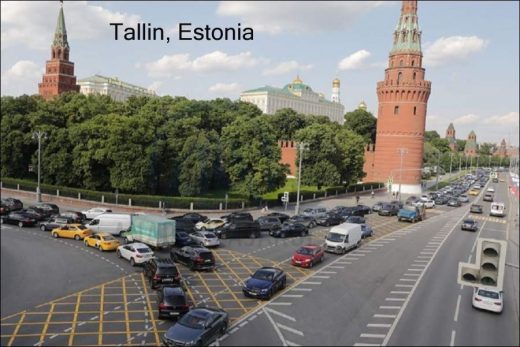Latvia, Estonia and Lithuania banned vehicles with Russian license plates to enter into their countries. Deputy Foreign Minister of Lithuania, where the first ban decision came, Jovita Neliupsiene, said in her written statement, “Currently, Russian citizens can only cross the border by bus or on foot.”
Neliupsiene stated that vehicles going to Kaliningrad, a Russian territory located on the Baltic Sea coast between Lithuania and Poland, which has no land connection with Russia, will be exempt from this ban, and stated that people who do not present the necessary documents will not be allowed through the border. On the other hand, in the news in the Latvian press, it was announced that vehicles with Russian license plates were banned to enter into the country.
Estonia also took the same step
The latest step on the issue came from Estonia, and the country’s Ministry of Internal Affairs announced that vehicles with Russian license plates are banned from entering the country as of today. In his written statement, Estonian Foreign Minister Margus Tsahkna stated that the decision in question was “correct” and that he welcomed the decision.
He pointed out that the decision made by the European Union (EU) Commission for vehicles with Russian license plates complies with Estonia’s foreign policy interests, position and sanctions policy. Tsahkna said, “Tomorrow, I will meet with the government and raise the issue of vehicles with Russian license plates currently in the country.”
Tsahkna noted that they will also hold a video conference meeting with neighboring countries today. Expressing their satisfaction that Lithuania and Latvia took the same step, Tsahkna shared his opinion: “While Russia continues genocide in Ukraine, we cannot allow the citizens of an aggressive state to enjoy the blessings of freedom and democracy.”
Views: 131





